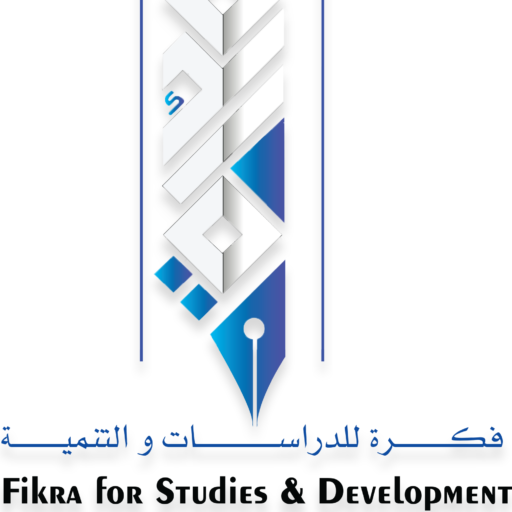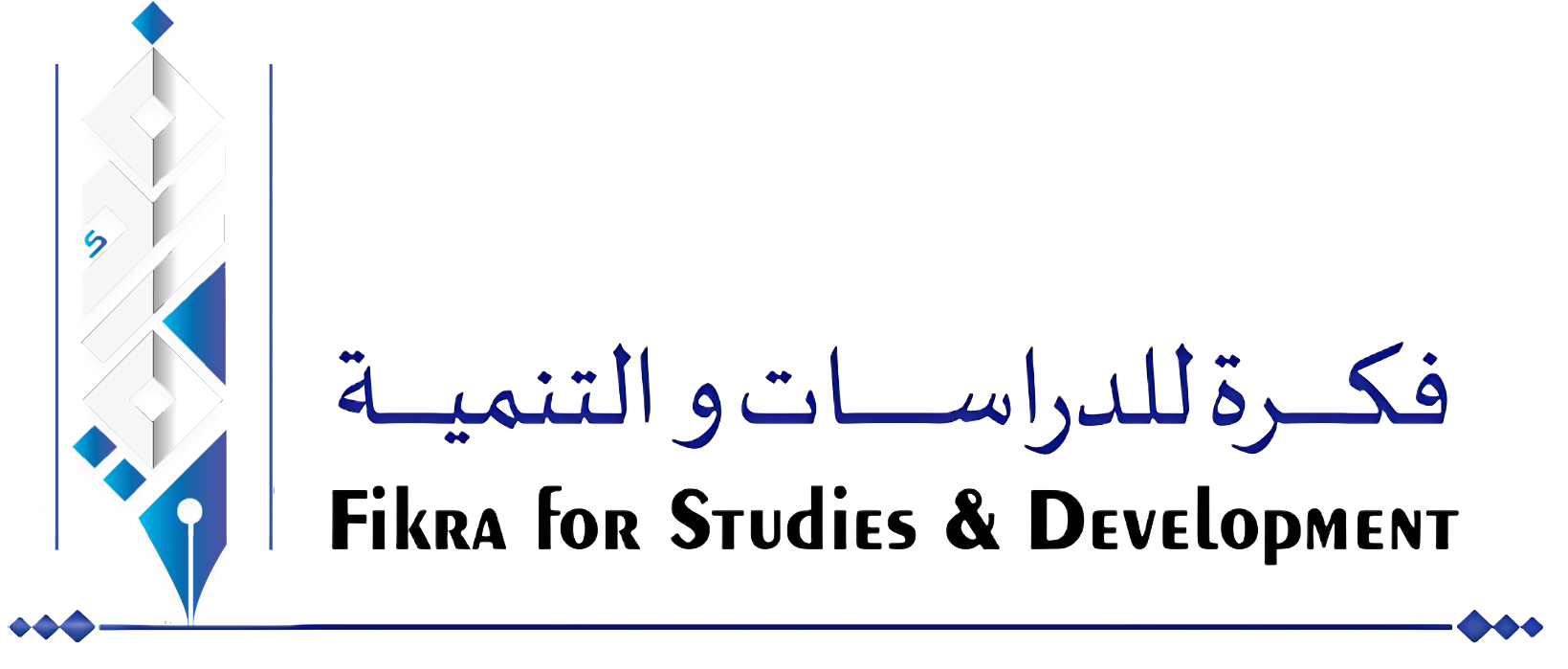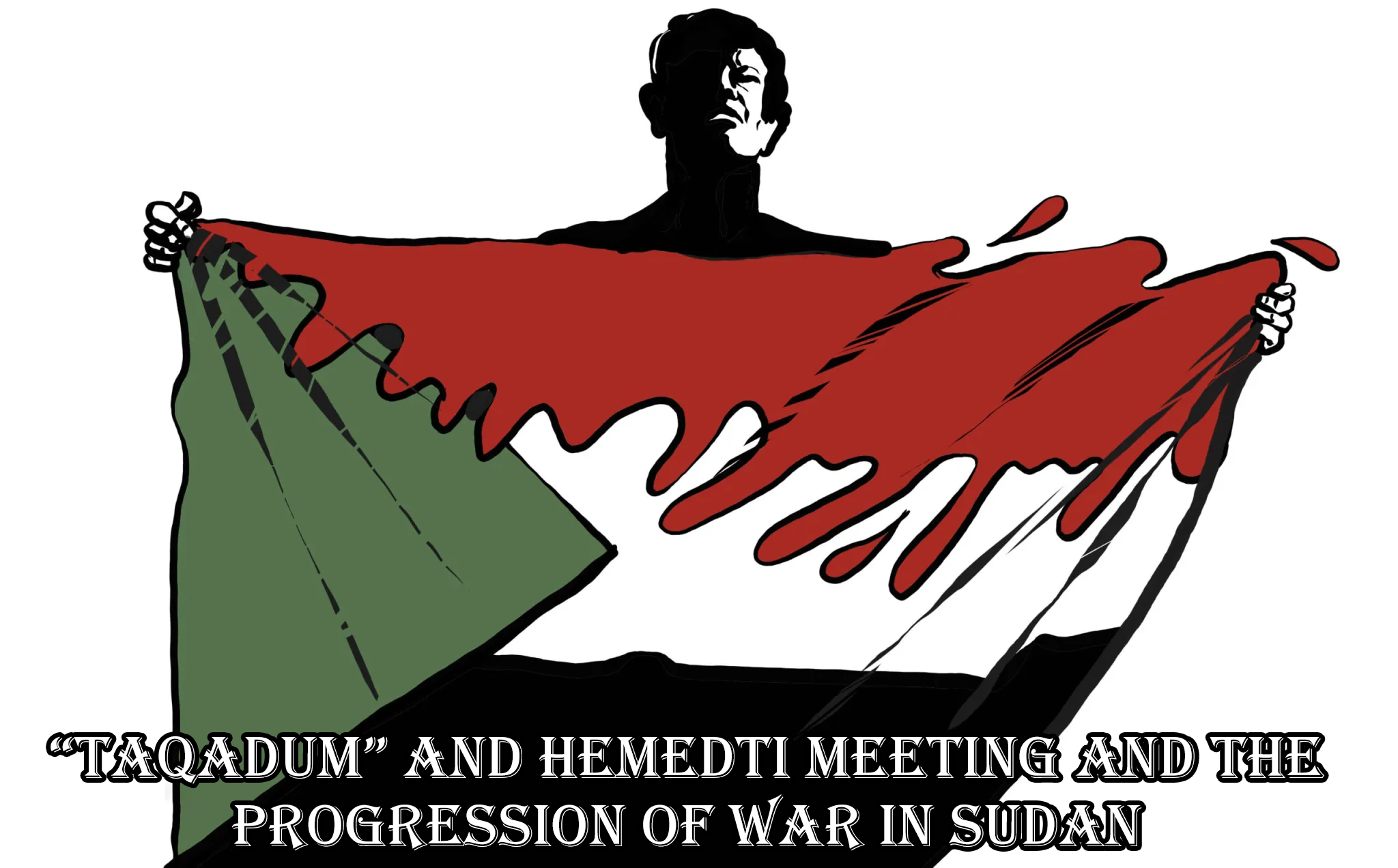“Taqadum” and Hemedti Meeting and the Progression of War in Sudan
“Taqadum” and Hemedti Meeting and the Progression of War in Sudan
Dr. Elshafie Khidir Saeed
Resolving the Sudan war seems to be a challenging task for both warring parties, with no clear solution in sight. Thus, the ongoing devastation and suffering will persist, resulting in significant harm to our nation and its citizens. Therefore, any action, from any party, aimed at ending the war in Sudan, deserves our support and encouragement. That is why we view the meeting between the Coordination of Democratic Civil Forces “Taqadum” and the Commander of the Rapid Support Forces (RSF) as an opportunity that deserves support.
However, moving in this direction, we must address the following points:
- It is important that the Coordination of Democratic Civil Forces “Taqadum” needs to establish communication channels with non-affiliated civil and political forces outside of it, as well as regional and international friendly powers, to provide them with a transparent account of the meeting’s proceedings and its assessment. Taqadum ought to heed the critiques and perspectives put forth by these forces.
- Despite the highly inappropriate remarks made in the Army Commander’s recent speech, it is important to acknowledge that he expressed a willingness to meet with “Taqadum” in Port Sudan. Taqadum should prioritize making the necessary contacts to set the date for this meeting promptly. I also think that it’s crucial to include the following two issues in the discussion of that meeting: the first is the campaigns of repression and arrests conducted by the Military Intelligence Service against political leaders, Emergency Rooms activists, and organizations involved in humanitarian aid. Second, to stress the importance of the Army Commander meeting with the Rapid Support Forces Commander without delay in accordance with the IGAD Summit’s resolution.
- Furthermore, for the activity and movement of the Coordination of Democratic Civil Forces to “Taqadum” to gain the necessary legitimacy of representation among a wide range of Sudanese civil forces, they must undertake political and operational preparations for their foundation conference, which was initially scheduled to take place before the end of the previous year. It is crucial that this takes place as soon as possible, ensuring that all civil and political factions are involved, and no group is excluded, regardless of their past political views. The focus should be on including all those who oppose war. Equally important, that everyone should be included in the planning process. Transparency is key, and all work should be free from any external influences, whether international or regional.
- There are legitimate concerns surrounding the agreement reached between the democratic civil forces “Taqadum” and the RSF Commander. Some worry that this agreement may potentially revert the situation to those conditions before the outbreak of war on April 15. Additionally, there are doubts about whether the future political process resulting from this agreement will truly involve the civilian forces or if it will be dominated by the military parties. Such a scenario would only perpetuate the crisis. Tackling these concerns and easing these worries is the responsibility of the Coordination of Democratic Civil Forces “Taqadum.”
It is factual that the Sudanese Armed Forces and the Rapid Support Forces are the two parties directly responsible for bringing the warfare to an end, but they cannot be responsible for determining Sudan’s fate after the war.
Therefore, the Sudanese political and civil forces must establish an actual unified civilian front for the broadest spectrum of Sudanese and ensure their presence is firmly established. This front should engage in a Sudanese-Sudanese civilian dialogue to deliberate on post-conflict arrangements and work towards a peaceful resolution that restores the nation to its trajectory towards democratic transformation and accomplishment of the objectives of the revolution.
This necessitates that all forces work together to develop a cohesive vision on this route, away from pre-war behaviors and practices, with the participation of all and without any exclusion, except those who advocate for the continuance of the war.
There is a pressing and significant matter that requires the attention and discussion of Sudanese civil forces. It is crucial to address the issue of popular mobilization, arming, and the formation of armed resistance. It is important to consider that these armed groups are not solely the product of the remnants of the former regime. Many of these groups emerged in reaction to the extensive abuses and violations committed by the Rapid Support Forces against the people, affecting their lives, belongings, and dignity. Nevertheless, it is indeed accurate that certain factions aim to capitalize on these armed groups. They may have even played a role in their formation, utilizing them to further their own agenda that opposes the December 2018 revolution and seeks retribution against the revolutionary forces.
It is crucial for the Sudanese civil forces to address this issue by advocating for a media narrative that effectively exposes and denounces the actions of the Rapid Support Forces. It is also important to reject the idea of arming and promoting armed popular resistance, as this would only escalate the conflict into a full-blown civil war, resulting in further violence based on identity. Regardless of one’s beliefs or affiliations, the outcome often leads to a divided nation and a loss of unity. Effective communication with religious and civil leaders, as well as engaging with youth groups within the country, is crucial in complementing media discourse. Indeed, it is essential to emphasize the importance of popular resistance, particularly through peaceful means. By rejecting war and employing numerous peaceful tactics, we can effectively halt the war.
Looking at the situation from a different perspective, considering the growing number of violations, the extensive damage to infrastructure, and the escalating ethnic and racial tensions, there is a growing concern for the safety of citizens. In light of the Jeddah platform’s inability to halt the fighting, it is possible that the Sudanese civil forces are contemplating the option of seeking direct international intervention on the grounds of international legitimacy and as per the international law to protect lives. In light of the dire circumstances caused by the war, there is a need to establish safe corridors to provide humanitarian aid to citizens in besieged areas. Additionally, it is important to ensure the flow of resources to areas and states that are far from the military operations, in order to support the revival of the economy. The war has resulted in various challenges such as the failure of banks, scarcity of cash, lack of salaries, absence of relevant institutions, and damage to the private sector.
This direct international intervention can occur through various mechanisms in accordance with international legitimacy, and with regional and international participation. The objective is to encourage the two parties to engage in serious negotiations to halt the ongoing conflict. Its measures should involve: stopping the transfer of weapons and ammunition to both sides, freezing funds in global and regional banks, implementing strong sanctions on institutions and individuals from both sides, and, if needed, deploying regional and international forces to establish safe green and disarmed zones.
Dr. Elshafie Khidir Saeed
A Sudanese pro-democracy political scholar, thinker and writer. He has a long track-record in the struggle against military dictatorships for realizing democracy, rule of law, peace and political stability in Sudan. He was subjected to political detention for five years in the 80th of the last century, and he went underground for many years fighting the Ingaz regime. Dr. Elshafie has a number of published writings on the consolidation of democracy and the intersections between the roles of the tribe, the army and politics in Sudan.
Dr. Elshafie can be contacted by email: eksahmed@gmail.com, elshafie@fikrasd.com.


